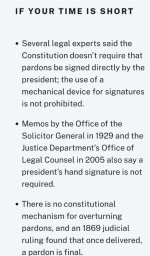ll74
Your Best Friend
- Joined
- Aug 22, 2013
- Posts
- 64,871
You're simply wrong and the courts have and will continue to prove you so. My interpretation is the accepted one....yours is not....nor will it ever be.No. All you have to do is read the Constitution with understanding. You can't seem to do that because you can't.

